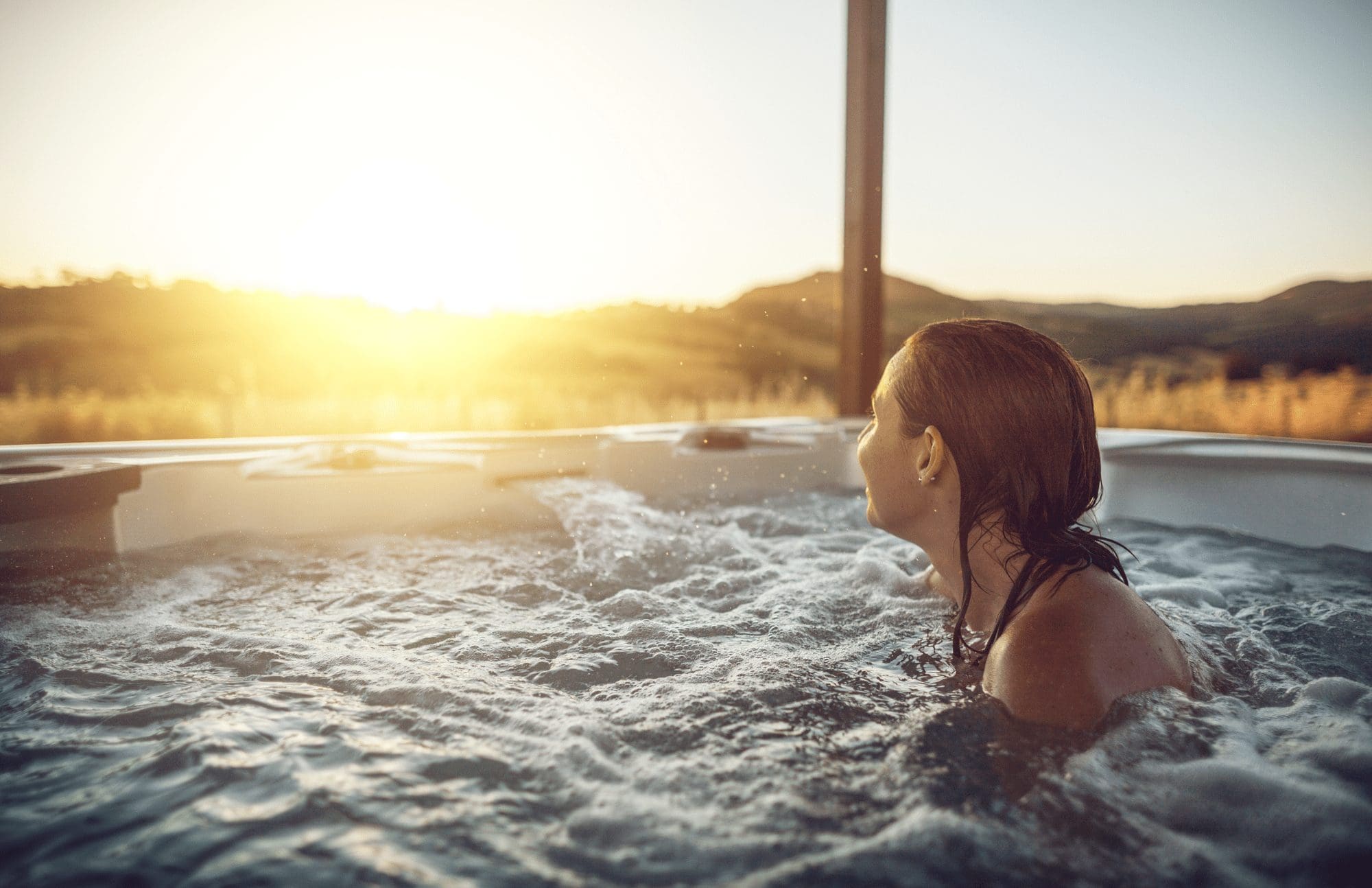
Health Tips for Hot Tub Enjoyment
Soaking in a hot tub is very popular and is more than a mere pastime. The steaming, whirling waters are relaxing and renewing. For many, hot tubbing is also an extremely social ritual.
Hot tubs not only make you feel good, but they can also be therapeutic. Hot water, especially as it spins and whirls, stimulates circulation and relaxes muscles. It relieves arthritis, sprains, sciatica, muscle spasms, sore joints, stiff necks, and back pains. A dip in a hot tub can also be reviving after exercise, or act as a natural sedative to induce sleep.
But hot tubs are not for everyone. If you have high blood pressure, or take sedatives or tranquilizers, stay out of the hot water. Anyone who has been drinking alcohol should also avoid this activity as alcohol raises body temperature. A physician should be consulted if there is any doubt about the effect of hot tubbing in specific situations.
To avoid dehydration, drink room-temperature water before, during and after hot tub activity — drinking cold water can shock your system.
Some people feel so comfortable in the hot tub that they want to stay for hours, but 20 to 30 minutes is all the time anyone should be in a hot tub continuously. Prolonged exposure to the heat can deplete energy and stress the heart. A hot tub can lull one into a false sense of security, which promotes a longer stay.
In order to keep the water in a hot tub in good condition and to maintain proper hygiene, the water should be clear and without strong chemical odors. The chemicals and pH balance must be checked frequently. It is preferable to have an automatic chlorinator and sensor that feeds chlorine when needed and maintains pH balance.
Chlorine is almost always a chemical choice for killing harmful bacteria, but some people think it’s unhealthy. If too much is used, people with sensitivities may get burning in their eyes or break out in a rash. Fumes, especially indoors, are a feature of chlorine that’s detrimental to health.
Bromine is a better choice for bacteria control because it doesn’t emit a noxious odor, and is more economical because it is held in hot water and requires less maintenance.
Lovers of the hot tub are heirs to a very old tradition. Ancient Egyptians and Chinese built bath chambers. The Greeks and Romans created luxurious bathing areas complete with heated water, cold showers and plunging pools. “Water therapy” is practiced today in India, Turkey, Russia and Finland, as well as American Indian cultures. In contemporary Japan, a visit to neighborhood hot baths is still a family ritual.
If you love hot tubs, why not enhance the pleasure by adding special herbs and aromatic oils to the water? Ancient traditions knew how to do it. Lavender oil, for example, is an incredibly relaxing aroma, while chaparral relieves sunburn and soothes the skin. Check with a natural food store for more product information.












